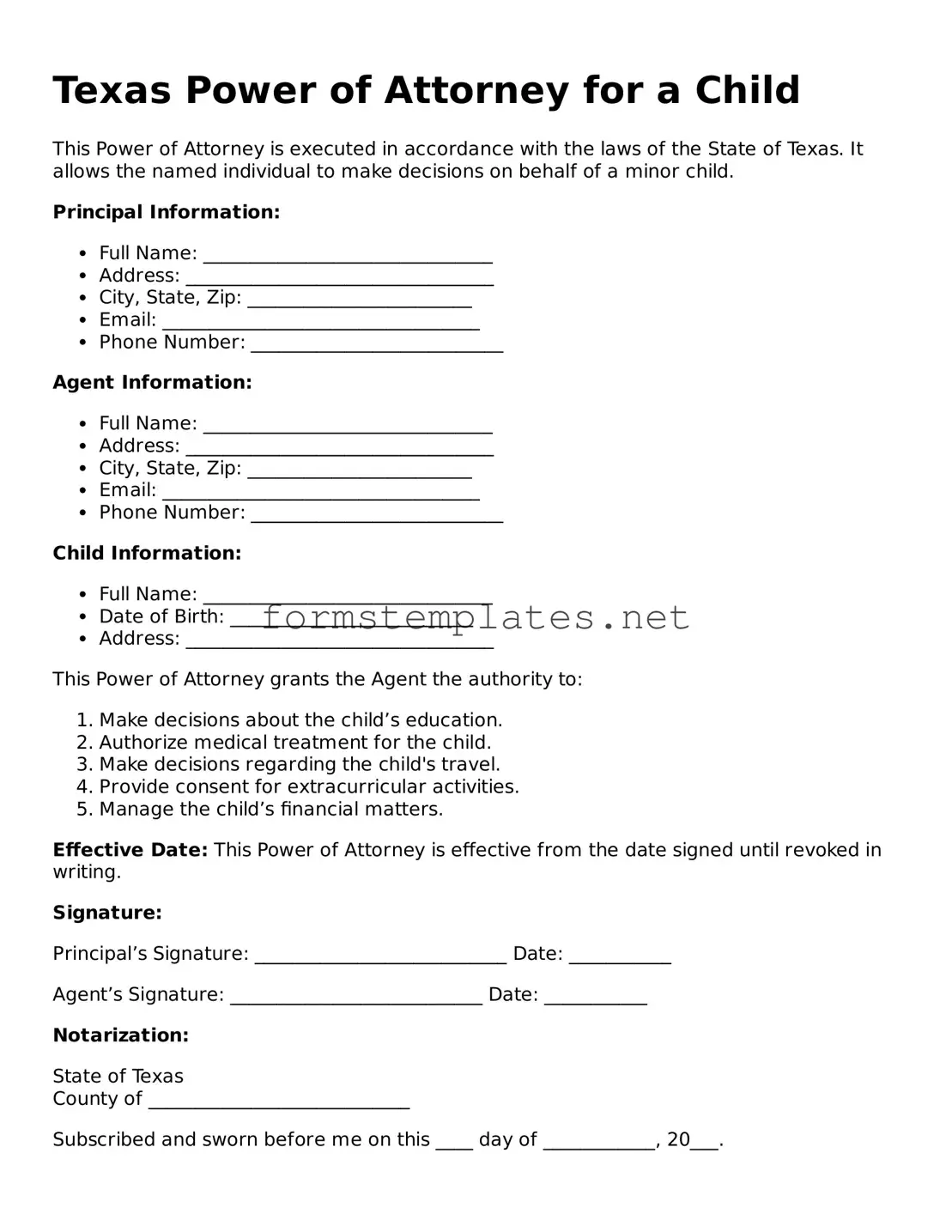What is a Texas Power of Attorney for a Child?
A Texas Power of Attorney for a Child is a legal document that allows a parent or guardian to designate another adult to make decisions on behalf of their child. This arrangement can be temporary and is often used when the parent is unable to care for the child due to travel, illness, or other circumstances.
Who can be designated as an agent in this Power of Attorney?
The agent can be any responsible adult, such as a relative, friend, or neighbor. However, it is important to choose someone who is trustworthy and capable of making decisions that are in the best interest of the child. The agent does not need to be a legal guardian.
What decisions can the agent make?
The agent can make a variety of decisions regarding the child's welfare, including:
-
Medical decisions, such as consenting to treatment or procedures
-
Educational decisions, including enrollment in schools or programs
-
General care, including daily living arrangements and activities
However, the specific powers granted can be tailored to meet the needs of the child and the circumstances of the parent.
How long does the Power of Attorney for a Child last?
The Power of Attorney can be set for a specific duration or until revoked by the parent or guardian. It is crucial to specify the time frame in the document if a limited duration is desired. If no duration is mentioned, it may remain in effect until the child turns 18 or the parent revokes it.
Do I need to have the Power of Attorney notarized?
Yes, the Texas Power of Attorney for a Child must be signed in front of a notary public. This step ensures that the document is legally binding and recognized by authorities. It is advisable to keep a copy of the notarized document for your records.
Can I revoke the Power of Attorney once it is established?
Yes, you can revoke the Power of Attorney at any time. To do this, a written revocation must be created and signed. It is important to notify the agent and any relevant parties, such as schools or medical providers, that the Power of Attorney has been revoked.
While there is no official state form mandated for the Power of Attorney for a Child in Texas, it is recommended to use a standardized form that complies with state laws. This helps ensure that all necessary elements are included and that the document is valid.
Where should I keep the Power of Attorney for a Child document?
It is advisable to keep the original document in a safe place, such as a locked drawer or a safe. Additionally, provide copies to the designated agent and any relevant parties, like schools or healthcare providers. This ensures that those involved can access the document when needed.

